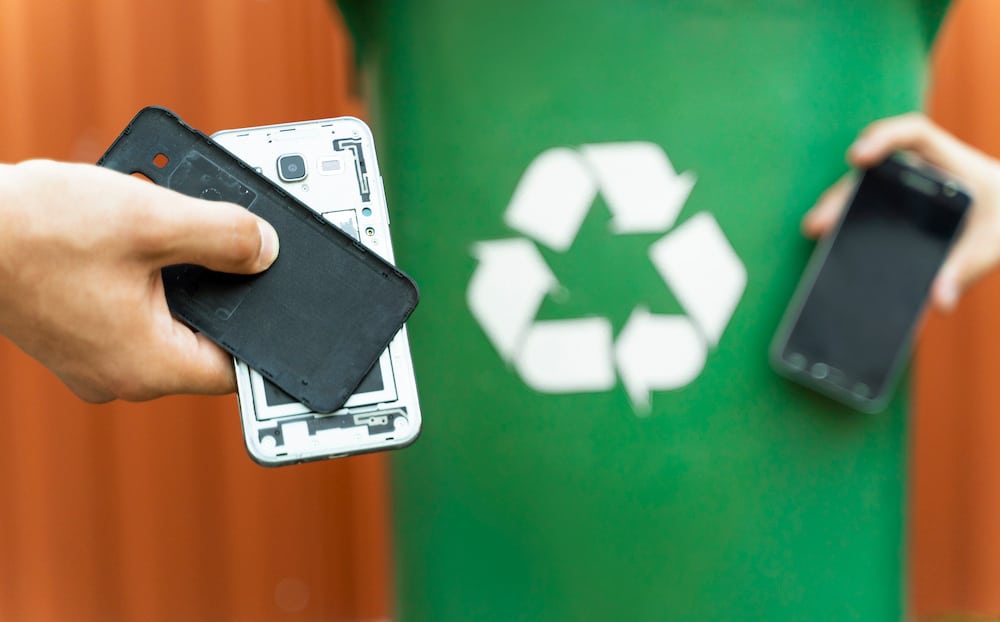“We need to recycle to save the planet and keep material out of landfill,” Greens MLA Jo Clay told the Legislative Assembly on Wednesday. She called on the ACT Government yesterday to investigate recycling arrangements for e-waste: electrical appliances, solar panels, and large batteries that power electric vehicles, buildings, and grids – new waste streams created by the transition from fossil fuels to cleantech.
“We need to set up recycling schemes now,” Ms Clay said. “While there is still a relatively small amount of solar panels, big batteries, and electrical appliances going into landfill, these waste streams are increasing really fast.
“Nationally, there were 2,700 tonnes of old solar panels at the end of their life in 2018. But there were 360,000 tonnes installed. We will get more of these in our waste stream soon. That means we’re heading for a lot of material really soon.”
Ms Clay’s motion was unanimously supported. Chris Steel, Minister for Transport and City Services, will report back to the Legislative Assembly by February with options and a timeline for the e-waste recycling scheme. The government can then ban these materials from landfill, as they already have televisions and computers.
“This will recover the precious resources we need to build our net-zero economy,” Ms Clay said. “It will create green jobs (and there are three times more jobs in recycling than in landfill management). It will boost support for the new tech that is replacing outdated fossil fuels. It will save our land and our waterways, and make sure we are not building endless landfills. It will start us on the way to [the] circular economy.”
Solar panels, batteries, and electrical appliances contain both hazardous materials and precious materials (lithium, nickel, silver, aluminium, plastic, glass, and silicon), Ms Clay said.
“Some of these resources are incredibly rare, and if we don’t recover them, we will run out.”
If not recovered, Ms Clay warned, these potential resources can become toxic hazards, leaching into groundwater, and contaminating the soil. Even a lined, capped landfill (like the ACT’s) was not the answer; it wasted space that could be used for homes or natural habitat. Nor was mining new materials a solution, she insisted, due to environmental impacts of mining.
“The good news is that all of these materials are recyclable,” Ms Clay said. Electrical appliances, for instance, are made up of the same materials as televisions and computers, so can be recycled in the same factory. Other businesses (such as the Green Shed) repair and resell appliances.
“But not all appliances get this second life; and even if they do, they need a recycling chain at the end of it. Otherwise, they end up in landfill.”
The ACT Government was determined to divert 90% of waste from landfill through specialised recycling programs, Mr Steel said. He and Rebecca Vassarotti, Minister for the Environment, were working with the Commonwealth to develop national product stewardship schemes for e-waste – in which manufacturers, importers, distributors, retailers, and consumers share the burden of disposing of items.
As of April 2021, Mr Steel noted, 34,000 ACT homes have small-scale solar systems installed; the Next Gen Energy Storage Program has offered rebates for 1,600 battery installations since 2016; and there were more than a thousand registered EVs on the road. “In response to these emerging waste streams, we need strong product stewardship programs.”
ACT residents can dispose of household e-waste (broken white goods, appliances and other electronic items) at the Mugga Lane and Mitchell resource management centres for free. Mr Steel also encouraged Canberrans to seek out businesses that reuse or refurbish items. (Details on Recyclopaedia.)
The Canberra Liberals also supported Ms Clay’s motion. MLA Nicole Lawder thought it resembled her 2019 motion calling on the government to develop a Territory-wide plan to safely dispose of panels and batteries without increasing the ACT’s landfill problem.
Ms Lawder was frustrated her motion had not passed two years before, and claimed the then-government weakened her motion and placed the onus on the Federal Government: “An interesting approach from a government that often likes to tout that it leads the way nationally.”
For more news:



